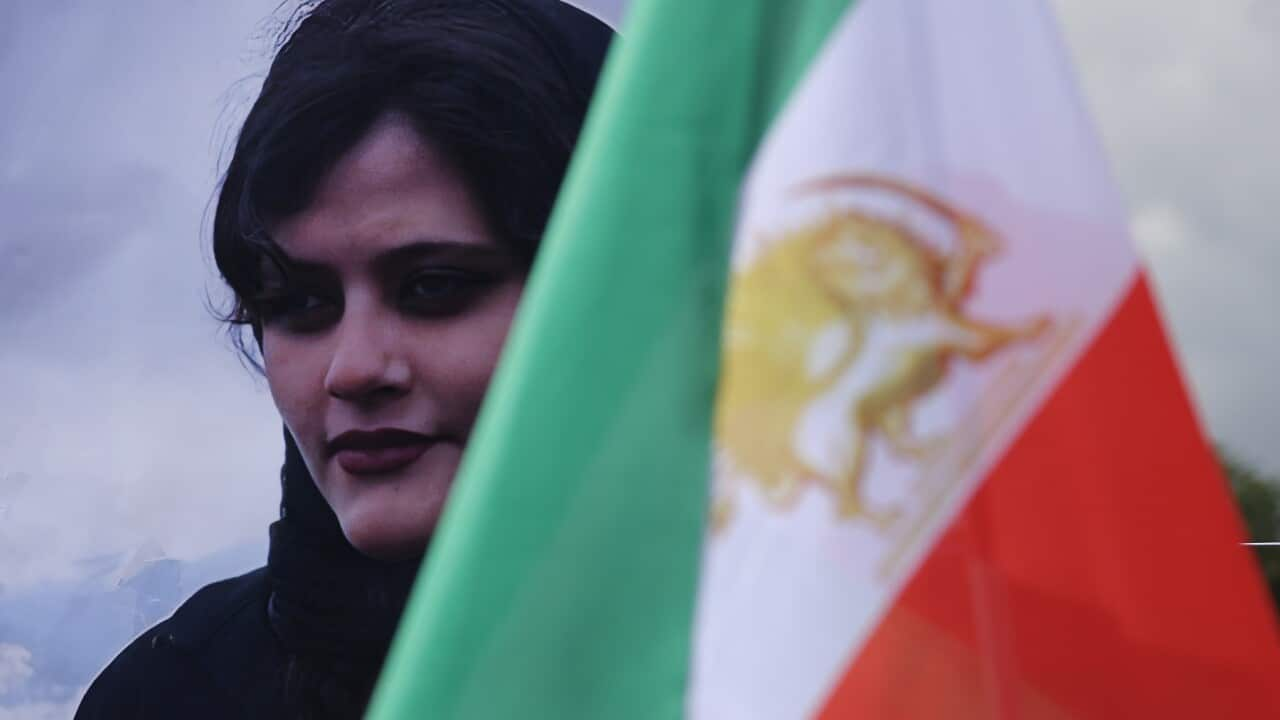TRANSCRIPT
"So, dear colleagues, I am very proud to announce that the 2023 Sakharov Prize for freedom of thought has been awarded to Jina Mahsa Amini and the women, life and freedom movement in Iran... (APPLAUSE)"
The European Union has awarded its top accolade, the Sakharov [[SAH-huh-rof]] Prize for Freedom, to Iranian woman Mahsa Amini.
The 22-year-old died in Iranian morality police custody last year [[SEPT 16 2022]], while being detained for allegedly failing to wear her hijab correctly, wearing it too loosely.
Her death has since sparked outrage, prompting mass protests and demonstrations around the world and sparking a global movement known as 'Woman, Life, Freedom.'
The movement calls for an end to Iranian modesty laws.
The European Union Parliament President Roberta Metsola says the award is a tribute to the brave women and men in Iran who are leading the movement.
"September 16, 2022 is a date which will live in infamy and the brutal murder of 22 year-old Jina Mahsa Amini marked a turning point. It has triggered a women-led movement that is making history. The world has heard the chants of 'women, life, liberty'. Three words that have become a rallying cry for all those standing up for equality, for dignity, and for freedom in Iran."
Mahsa Amini was born in Iran's western province of Kurdistan.
Witnesses say she was beaten to death, with her family saying she was killed by blows to her head and limbs.
But Iranian authorities initially said Amini suffered a heart attack before the country's coroner later linked her death to a pre-existing medical condition.
The months of protests that unfolded afterwards have been described as unprecedented and some of the worst political turmoil in decades, the likes of which have not seen 1979 Islamic Revolution.
Dozens reportedly died in the demonstrations, which spread to over 80 cities nationwide.
Women, including schoolgirls, took off and burned headscarves, challenging laws requiring women to cover their hair and wear loose-fitting clothes.
#MahsaAmini become one of the top trending hashtags on Persian-language Twitter.
Iran's President Ebrahim Raisi spoke after her death, saying her death must be investigated, but that chaos would not be tolerated.
"Regarding lady Amini's death, it has affected everyone and everyone believes this should be clarified. We must follow it up with any political perspective, in any way and anywhere in the country, and this issue must be pursued fairly and equitably."
Australians, too, held their own protests, with a rally marking one year since her death in September this year.
The federal government also slapped sanctions on four regime-linked individuals and three entities.
Foreign Minister Penny Wong at the time said the government would continue to 'target those who oppress women and girls in Iran'.
Some of those leading the 'Woman, Life, Freedom' movement, and members of the Iranian diaspora, also demonstrated by shaving, or cutting their hair off with scissors.
Under the Islamic Republic, hair is seen as a sign of beauty and must be hidden.
The act of plucking hair is also referred to in Persian poetry and literature as an act of mourning.
Iraqi-born Swedish member of the European Parliament, Abir Al-Sahlani, was among the mourners.
"Until Iran is free, our fury will be bigger than the oppressors. Until the women of Iran are free, we are going to stand with you. Jin, Jiyan, Azadi. Women, life freedom!"
European Union Parliament President Roberta Metsola delivering a similar message in Kurdish, as she announced the award.
"The European Parliament hears you, the world sees you and we are with you. Jin, Jiyan, Azadi ('women, life, liberty' in Kurdish.)"













